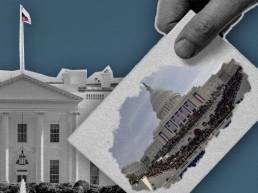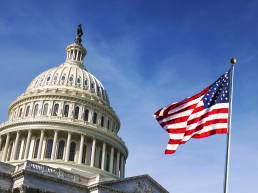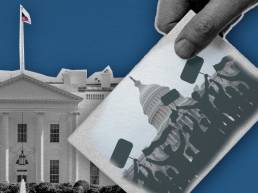Before South Carolina, Vermont Senator Bernie Sanders seemed to be unstoppable in the race to ensure that this time he would be the Democratic Party’s nominee for the presidential election.
Joe Biden, Vice-President during the Obama era, didn’t get better than a second-place with less than half of Bernie Sanders’ votes in Nevada. Before that, he finished fourth in Iowa and placed fifth in New Hampshire.
The support of the Afro-American community in South Carolina – as he always argued he would succeed – gave full blast to his candidacy and allowed him not only to fend off much of the competition, but also to get the support of some of his opponents: Pete Buttigieg and Amy Kloubachar gave up before the Super Tuesday and declared their support for Joe Biden.
The victory that followed in 10 of the 14 states in dispute on the biggest day of the Democratic primary allowed him to clear even more competition (Michael Bloomberg suspended the campaign and declared support for Biden, Elizabeth Warren also dropped out of the race but has not yet said whether she will support someone).
There are more votes today. Big Tuesday isn’t as big as Super Tuesday — it’s only six states up for grabs –, but it’s important for both candidates for different reasons, and even more important for the Democratic Party as a whole.
Michigan
125 delegates are at stake, in a state in which Bernie Sanders won surprisingly in the 2016 primary against Hillary Clinton. Initially, the polls gave Bernie Sanders the upper hand, but since the Super Tuesday victory, the trend has changed and now the favorite is Joe Biden.
This is a particularly important State because it is one of those that was regarded as a Democrat, but which chose Donald Trump over Hillary Clinton in the last election.
The typical electorate is families living in the suburbs, with women flagged as a group with the potential to decide who will win. Among this group, polls indicate that Joe Biden will be the favorite. In 2016, the number of Caucasian, lower-class families still voted more for Democrats than Republicans, but this difference was the shortest since Ronald Reagan won his first election.
Missouri
There are 68 delegates up for grabs. It’s not the biggest number, but cumulatively it can make a difference. Bernie Sanders lost this state in 2016 to Hillary Clinton by just over a thousand votes.
However, Missouri has a large proportion of Afro-American voters, an electorate that has preferred Joe Biden in the previous primaries, something polls point to be repeated this Tuesday.
Washington, North Dakota, Mississippi and Idaho
Washington is the second state with the most delegates to vote (89), and at a time when it is facing an unprecedented situation. This is the State with the most confirmed cases of COVID-19, more than 100 of the 400 registered. Seattle has been particularly affected and this can affect not only the response that voters give at the polls but the number of people who will come out to vote.
Related Posts
January 18, 2021
Observador Newsletter: Why does the inauguration matter?
The importance of the new president's…
January 14, 2021
‘América Vinte Vinte’: Trump’s second impeachment and Biden’s start
This week, Professor Teresa Botelho and…
January 11, 2021
Observador Newsletter: How do you stop an invasion in Washington? Derrick DeMelo Interview
Analysis of the historical events that…


